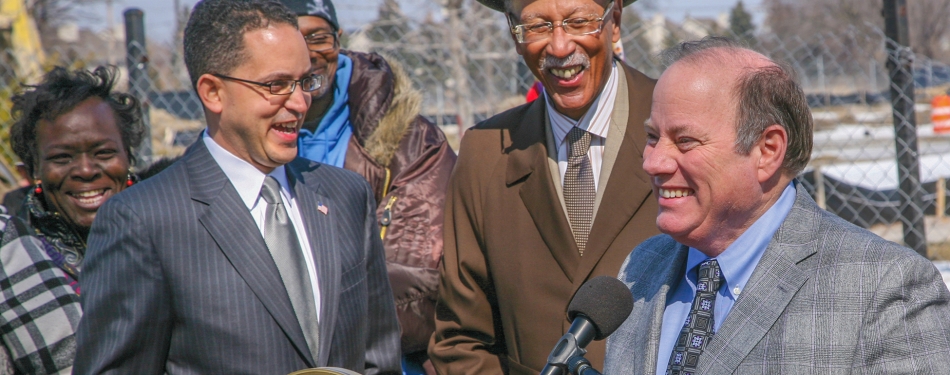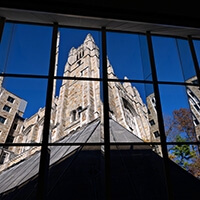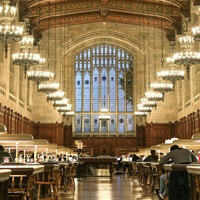Mike Duggan has had, in his words, “six different careers.”
But the common thread is his love for the Motor City and an internal drive to follow his own path. His current career has thrust him onto the national stage: Duggan, ’83, is the 75th mayor of the city of Detroit, currently serving a third term that began this past January.
Recently, Duggan took part in a conversation hosted by the Law School’s chapter of the American Constitution Society during which he spoke about his public service career, the latest developments in Detroit, and why his favorite class during law school skewed medieval.
As part of his pursuit to “save the world,” Duggan explained that he began his professional tenure in his hometown of Detroit while he was at Michigan Law.
Taking a 1L clerkship at a small litigation firm downtown gave him exposure to a variety of cases, and allowed him to not only graduate with concrete experience, but also hit the ground running in his career.
A year after he graduated, he started taking on high-profile clients, and his work was noticed by top government officials. Long before assuming the office of mayor, he served as Wayne County’s assistant corporation counsel, county prosecutor, and deputy county executive, as well as president and CEO of the Detroit Medical Center.
“When I was in Ann Arbor, nobody thought about going to Detroit,” said Duggan. “I’m on my sixth career all within three miles of where I started basically because I chose to go to Detroit and not where the conventional opportunities were in Chicago, New York, and Los Angeles. There’s something about charting your own course and following what you want to do that has a great way of working out.”
In 2013, when Duggan first was elected mayor, the city was dealing with bankruptcy proceedings, along with other well-documented challenges, including a declining population, a beleaguered public transportation system, vacant land, stormwater management, and high crime rates.
While he admitted that he—like anyone in such a high-profile public office—has critics, Duggan proudly told the student audience how his administration has been addressing these ongoing issues.
As one example, he highlighted a new initiative through the Detroit Land Bank Authority that will allow neighborhood groups to buy vacant land at an affordable price.
“We’re launching a grant program called ‘Create-A-Project,’ where the block clubs can get together to turn vacant lots into a community garden or a neighborhood park,” said Duggan. “You’re going to see land being used not by some central design, but really supporting the provisions of the block clubs and the neighborhood associations who are living there.”
When asked if he would still pursue law school if he could do it all again, Duggan shared a story from when he worked as the county prosecutor looking for solutions to the problem of abandoned houses.
“People walk away from their house and the first year that house is abandoned, the whole block goes down in property values,” he said. “I was looking for a legal means to step in when the house was first abandoned in order to save the block.”
One traditional method of dealing with abandoned houses was by issuing a “blight ticket,” which Duggan said proved ineffective because they went largely ignored and unenforced. Another oft-used method was demolition, which contradicted the city’s goal of fully occupied neighborhoods.
“Here’s where you never know how your University of Michigan training is going to help,” he said. “I thought about when I was in law school, my medieval law class went to the roots of common law, and we learned about something called ‘common law nuisance.’ Inspired by this, we told the homeowners to either fix up their house or we would sell it. It had never been tried before but we hired a firm and filed several hundred cases.”
“We probably saved 15,000 to 20,000 houses in this city by using nuisance abatement lawsuits. If you’re somebody who has the drive to change the world, there’s nothing better than a law degree to have in your back pocket.”







